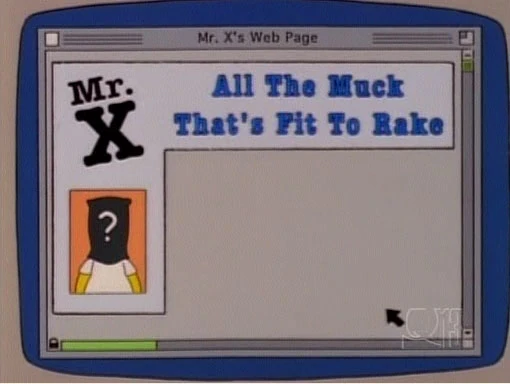Timsup2nothin
Deity
- Joined
- Apr 2, 2013
- Messages
- 46,737
I just discovered this thing in my town. They call themselves an internet news source and have claimed a venerated name from the world of journalism; Times, no less. They have a website that is pretty much template consistent with any newspaper site. Of course, just like any modern media their website is backed by their presence on Facebook and every other form of social networking known to man.
Their claim is that they are "up to the minute" as compared to the local daily paper, which would seem to be a good thing. They also don't have any ads from the mayor of one of our local cities, who controls probably 40% of the available advertising revenue in the valley so every media organization other than this one gives him grotesque preferential treatment. I originally thought this lack of selling out to him was a good thing, but now I think that maybe this thing is just beneath his notice.
Anyway, the real problem is that looking at this "news source" it has become obvious that it isn't any sort of "new journalism for the modern world," it is pretty much just the "editor," who is an obvious social media maven, playing dress up. The website isn't a media site with representation on social media, it's pretty much just an extension of a Facebook account that adds a pretense of credibility to what would otherwise be just a Facebook user spouting off. There isn't even a pretense of the most basic concepts of journalism. Yet if all of her followers actually are locals they represent about ten percent of the population, and from their comments it seems they treat this woman as the reincarnation of Cronkite.
Is this a common thing now?
Their claim is that they are "up to the minute" as compared to the local daily paper, which would seem to be a good thing. They also don't have any ads from the mayor of one of our local cities, who controls probably 40% of the available advertising revenue in the valley so every media organization other than this one gives him grotesque preferential treatment. I originally thought this lack of selling out to him was a good thing, but now I think that maybe this thing is just beneath his notice.
Anyway, the real problem is that looking at this "news source" it has become obvious that it isn't any sort of "new journalism for the modern world," it is pretty much just the "editor," who is an obvious social media maven, playing dress up. The website isn't a media site with representation on social media, it's pretty much just an extension of a Facebook account that adds a pretense of credibility to what would otherwise be just a Facebook user spouting off. There isn't even a pretense of the most basic concepts of journalism. Yet if all of her followers actually are locals they represent about ten percent of the population, and from their comments it seems they treat this woman as the reincarnation of Cronkite.
Is this a common thing now?



